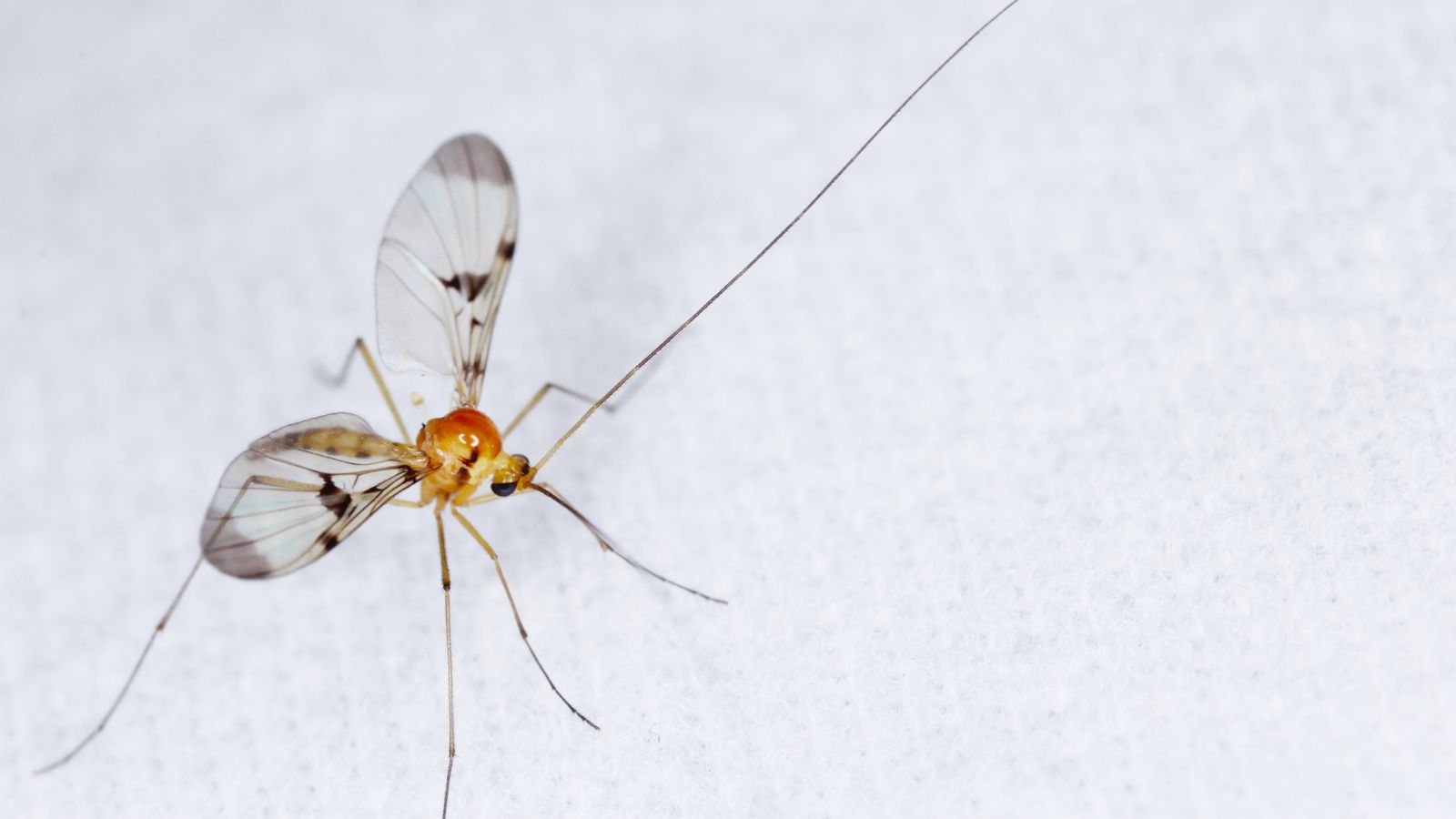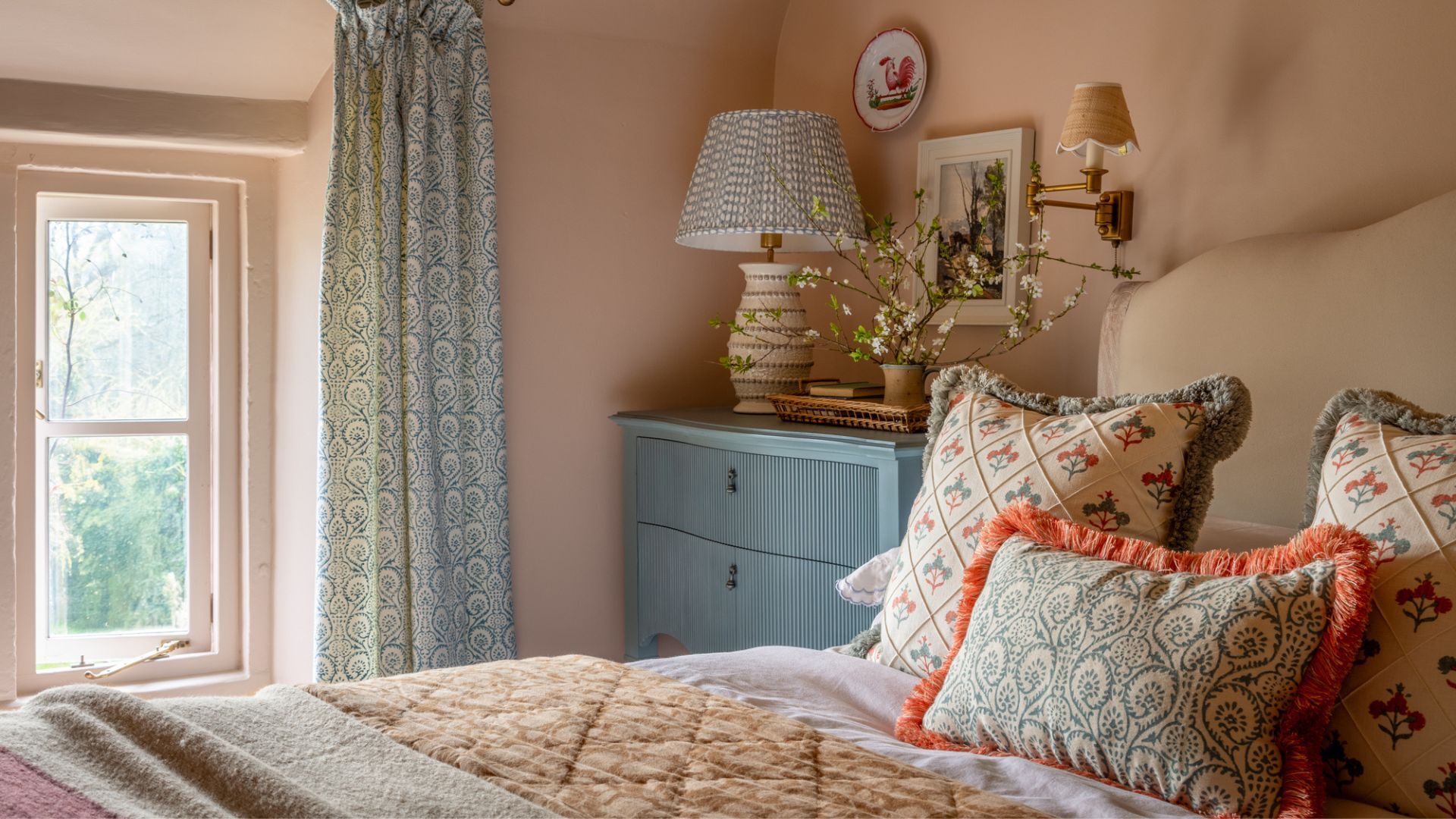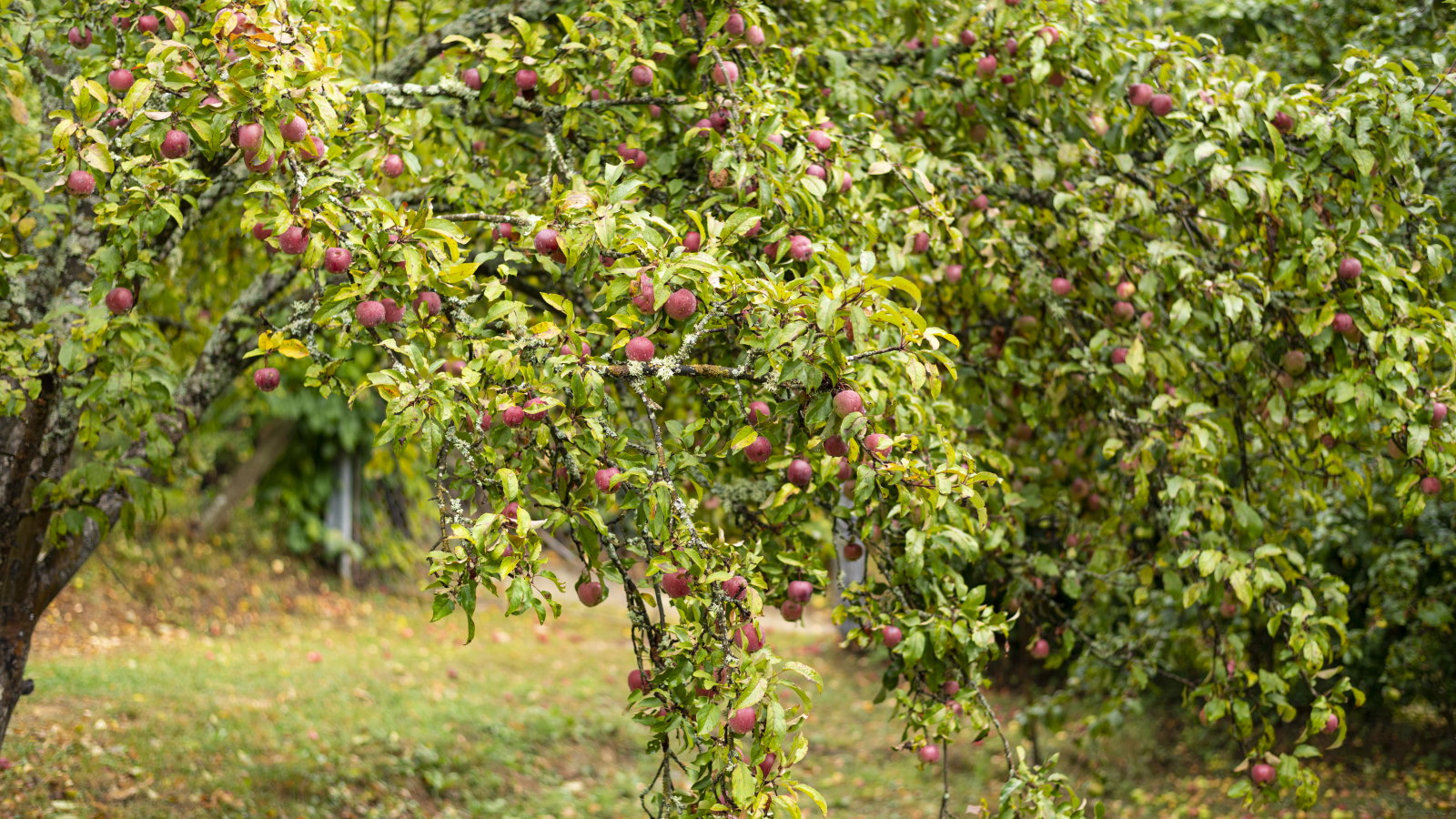Why do I have gnats in my house? Expert answers to help you keep them away
Understand why there are gnats in your house and you can make it less attractive. Here are the reasons


Gnats are an annoying presence in a home whichever of the types of small insect to which we give this name we’re talking about. They seem to appear out of nowhere, and they’re pests in whichever room you find them.
Thankfully, you can get rid of gnats, but you might wonder why you have a gnat infestation in the house in the first place? After all, if you know that, it should be easier to keep these tiny and very unwelcome flies away.
To discourage the pesky insects we’ve put together an expert guide on why there are gnats in the house so you can take the measures that stop them making your home their home.
The reasons why gnats are in a house
When we’re talking ‘gnats’, we’re using the everyday name for some different small winged insects. The gnats that you’ll find inside your home are likely to actually be fruit flies, or fungus gnats, or drain flies (aka phorid flies). Getting rid of fruit flies, getting rid of fungus gnats, and getting rid of gnats in plants are all possible, but why are they there? These are the answers.
1. Moisture
Moisture is one of the reasons why gnats hang out in homes. ‘Moisture brings gnats to the house because their eggs need it to survive,’ explains David Price, associate certified entomologist and technical director, Mosquito Joe, a Neighborly Company.
‘Typically, overwatered houseplants, clogged drains, dirty garbage disposals, garbage bins, and recycling bins are perfect harborage once temperatures average 70 to 72ºF outside, it’s a perfect environment for egg-laying and developing these gnats.
‘The adult fungus gnat will swarm and meet up as the male inseminates the female and she can lay up to 200 eggs in a houseplant pot, or anywhere damp, decaying organic matter is found.’
Drain flies, meanwhile, might fly out of a kitchen or bathroom sink when disturbed since they are – you guessed it – attracted to the environment of the drain.
2. Fruit and vegetables
Fruit and veggies are appealing to us – and to the fruit flies we don’t want in our homes, too. ‘Gnats are all about scent,’ says David Price. ‘They are attracted to the smells of ripening fruit and vegetables. They are also drawn to the decaying fruit and vegetables that may need to be appropriately covered in your garbage bin.
‘In some cases gnats can be imported from grocery stores and farmers markets; inspect your fruit and vegetables carefully before storage.’
3. Houseplants
We already mentioned houseplants, above, in relation to the moisture that brings gnats to a house. The specific type that indoor plants can encourage are fungus gnats. These pests breed in damp soil.
To deter them overwatering plants should be avoided – let the soil dry out before you water again – and always use pots that don’t provide good drainage. Get rid of old leaves or flowers that they’ll feed on as well. While they are irritating, do bear in mind, however, that the gnats won’t damage the plants themselves, although they can damage plant cuttings if you’re cultivating new ones.
4. Garbage
Yes, we all have garbage, but it’s how you deal with it that counts. Do it wrong and gnats can result. ‘Garbage cans that are not sealed properly attract gnats to your house; they are drawn to the decaying organic matter often found in your garbage can,’ explains David Price. ‘They are also drawn to garbage disposals and sink drains that need to be cleaned regularly due to the moisture and old food found in them.’
5. Humans
OK, this next category doesn’t involve something you can do as much to tackle in an effort to avoid attracting gnats to your home. The truth is that humans are a lure. ‘Gnats are attracted to sweet and fruity scents, so perfume, lotion, body wash, etc, could attract gnats to you and your house,’ says David Price. ‘Also, they are drawn to body heat, sweat, and water.’
Of course, wiping up spills immediately, employing effective cleaning tips and good housekeeping can definitely go a long way to combating gnat attraction.
FAQs
Where do gnats lay eggs?
Gnats lay eggs in places like moist soil or fruit that’s decaying. This nourishes the larva. Fruit flies do so on both fruit and vegetables that are decomposing, but also lay them in drain lines, garbage cans and garbage disposals. It’s fungus gnats that use moist soil, and they can use other damp plant debris. As for drain flies, think drain pipes, but also garbage cans.
Take the right measures and you can do plenty to prevent an infestation of gnats in your home. Although fungus gnats and drain flies aren’t thought to be harmful to human health, that doesn’t mean they don’t cause a nuisance plus who wants them buzzing around? Fruit flies, meanwhile, can transfer germs compromising kitchen hygiene. Know the attractions and you can avoid or lessen the problem.
Sign up to the Homes & Gardens newsletter
Design expertise in your inbox – from inspiring decorating ideas and beautiful celebrity homes to practical gardening advice and shopping round-ups.

Sarah is a freelance journalist and editor. Previously executive editor of Ideal Home, she’s specialized in interiors, property and gardens for over 20 years, and covers interior design, house design, gardens, and cleaning and organizing a home for Homes & Gardens. She’s written for websites, including Houzz, Channel 4’s flagship website, 4Homes, and Future’s T3; national newspapers, including The Guardian; and magazines including Future’s Country Homes & Interiors, Homebuilding & Renovating, Period Living, and Style at Home, as well as House Beautiful, Good Homes, Grand Designs, Homes & Antiques, LandLove and The English Home among others. It’s no big surprise that she likes to put what she writes about into practice, and is a serial house renovator.
-
 These are the 6 must-have colors to decorate with in April 2025
These are the 6 must-have colors to decorate with in April 2025What do retro-inspired yellows and beautiful blues all have in common? They're on our hot list for the season ahead
By Sophia Pouget de St Victor Published
-
 Plants never to grow next to fruit trees
Plants never to grow next to fruit treesExpert advice on which plants to keep away from fruit trees to encourage a healthy harvest
By Jacky Parker Published